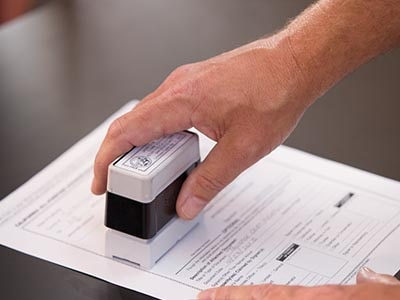Experienced Conveyancer: Facilitating Smooth Property Transactions
Experienced Conveyancer: Facilitating Smooth Property Transactions
Blog Article
Debunking Notarial Work: Streamlining the Role and Value of Notaries
In the intricate web of lawful documents and confirmation, notaries stand as columns of guarantee and authenticity. Their role, frequently shrouded in mystery for several, carries substantial weight in making sure the legitimacy and honesty of crucial files. As guardians of validity and truth, notaries play a crucial part in our society, yet their work is not constantly fully understood. By deciphering the intricacies bordering notarial methods and shedding light on the significance of their acts, a clearer understanding arises of the crucial function notaries play in upholding the textile of legal and legal contracts.
The History of Notarial Job
The background of notarial work dates back to ancient human beings, where scribes played a vital duty in videotaping crucial information and confirming files. This led to the advancement of notaries, people designated by the state to act as objective witnesses in legal matters.
During the Middle Ages, notaries got importance in Europe, with their features broadening to consist of composing legal documents, licensing signatures, and protecting records. The surge of global profession even more emphasized the value of notarial job in validating agreements and agreements across borders.
In the modern era, notaries proceed to play an essential role in legal and organization transactions by verifying identities, verifying the credibility of files, and protecting against fraudulence. Their role in licensing the validity of agreements includes a layer of safety and trust to the ever-evolving landscape of business and regulation.

Duties and Obligations of Notaries
Notaries play an essential role in validating the authenticity of records and the identity of signatures. One of their primary responsibilities is to witness the finalizing of essential papers, such as acts, agreements, and wills, to make certain that all parties are entering right into contracts intentionally and voluntarily.
They license copies of original papers, offering assurance to institutions that the copies are real reproductions of the originals. In general, the tasks and responsibilities of notaries are important in guarding the honesty and legality of various records and deals - Notary.
Notarial Certificates and Signatures
Exemplifying careful focus to information, notarial certificates and signatures function as vital elements in verifying the authenticity of lawful records. Notarial certifications usually contain important info such as the date of registration, the names of the signatories, a description of the paper, and the notary's main seal. These certificates offer a clear record of the notarial act, ensuring that the record can be quickly determined and traced back i was reading this to the notary that managed the process.
Trademarks play a critical role in notarial job, as they signify the arrangement and approval of the celebrations involved. Notaries meticulously witness the signing of documents to confirm the identity of the signatures and confirm that they are authorizing of their own free choice. By attaching their official seal and signature to the record, notaries accredit that the essential treatments have actually been followed which the document is legitimate and enforceable.
Fundamentally, notarial certifications and signatures are the trademark of credibility in legal transactions, giving assurance to all celebrations entailed that the papers are reputable and binding.
Significance of Notarial Acts

Notarization Refine Described
Describing the notarization process supplies helpful resources clarity on the essential actions involved in verifying lawful documents. The registration process typically begins with the private offering the file to a notary public. The notary after that validates the signer's identification with appropriate identification methods. When the identity is confirmed, the notary makes certain that the specific authorizing the document does so willingly and with no threat.

Conclusion

Notarial certifications typically contain important details such as the day of registration, the names of the signatures, a summary of the record, and the notary's official seal. These certifications offer a clear document of the notarial act, making sure that the record can be easily determined and traced back to the notary that supervised the process.
By fastening their official seal and trademark to the document, notaries accredit that the necessary treatments have been followed and that the record is legitimate and enforceable.
By verifying the identification of the signatories, verifying their desire to get in into the contract, and licensing the date and location of the signing, notaries play an essential function in upholding the validity of lawful documents.After the record is authorized, the notary will certainly fasten their official seal or stamp onto the file.
Report this page